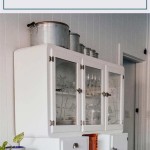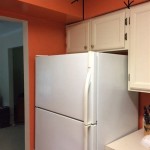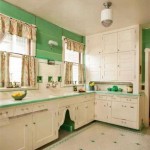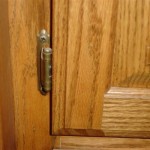Glazing Over Stained Kitchen Cabinets: A Comprehensive Guide
Stained kitchen cabinets exude a classic charm and timeless elegance, but their opaque nature can sometimes limit their visual appeal. Glazing over stained cabinets offers a unique solution, adding a touch of translucency and depth to their surfaces. This article will delve into all the essential aspects of glazing over stained kitchen cabinets, providing a comprehensive guide to help you decide if this technique is right for your kitchen.
Benefits of Glazing Stained Kitchen Cabinets
Glazing over stained cabinets bestows an array of benefits, including:
- Enhanced Depth and Dimension: Glazing creates a translucent layer that allows the wood grain and natural variations of the stain to subtly show through, enhancing the visual depth and dimension of the cabinets.
- Customizable Coloration: Glazes come in a wide range of colors, enabling you to customize the final appearance of your cabinets. You can opt for a subtle hint of color or a more saturated hue.
- Protection and Durability: Glazing acts as a protective barrier over the stain, shielding it from wear and tear. It also enhances the durability of the cabinet finish.
Types of Glazes
Various types of glazes are available for use over stained cabinets:
- Oil-Based Glazes: These glazes penetrate the wood and create a durable finish. They typically require multiple coats to achieve the desired opacity.
- Water-Based Glazes: Water-based glazes are less durable than oil-based glazes but dry faster and are easier to apply.
- Acrylic Glazes: Acrylic glazes offer a glossy finish and are ideal for creating a more modern look.
Application Process
Glazing over stained cabinets is a meticulous process that requires careful attention to detail:
- Preparation: Clean and lightly sand the cabinet surfaces to ensure good adhesion.
- Application: Apply the glaze using a brush or sponge, working it into the wood grain. Allow the glaze to penetrate for the recommended time.
- Wiping: Wipe off the excess glaze using a clean cloth, controlling the opacity and evenness by adjusting the amount of glaze left behind.
- Drying: Allow the glaze to dry completely before applying additional coats or a topcoat.
- Cleaning: Regularly clean glazed cabinets with a mild detergent and damp cloth to prevent dirt and grime buildup.
- Avoid Harsh Chemicals: Avoid using abrasive or harsh chemicals that could damage the glaze.
- Touch-Ups: Over time, the glaze may require touch-ups to maintain its appearance. Consult with a professional for guidance.
Maintenance and Care
Maintaining glazed cabinets is crucial for their longevity:
Conclusion
Glazing over stained kitchen cabinets is a versatile technique that can transform their appearance, adding depth, dimension, and customization options. By understanding the different types of glazes, the application process, and proper maintenance, you can achieve a stunning and durable finish for your kitchen cabinets.

How To Glaze Kitchen Cabinets Diyer S Guide Bob Vila

Custom Kitchen And Bathroom Cabinets Vanity Hardware Del Wood

How To Glaze Cabinets With Gel Stain Adventures Of A Diy Mom

How To Glaze Cabinets With Gel Stain Adventures Of A Diy Mom

Custom Kitchen And Bathroom Cabinets Vanity Hardware Del Wood

Cabinets For The Home Glazed Kitchen Remodeling Updated

How To Glaze Cabinets With Gel Stain Adventures Of A Diy Mom

Stained Glass Kitchen Cabinet Inserts Ci 2 Elegant Doors Cabinets Buy

How To Paint And Glaze Kitchen Cabinets Over Stained Wood

Glazed Cabinets Add Traditional Depth Dimension To Any Kitchen
Related Posts








